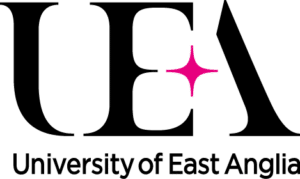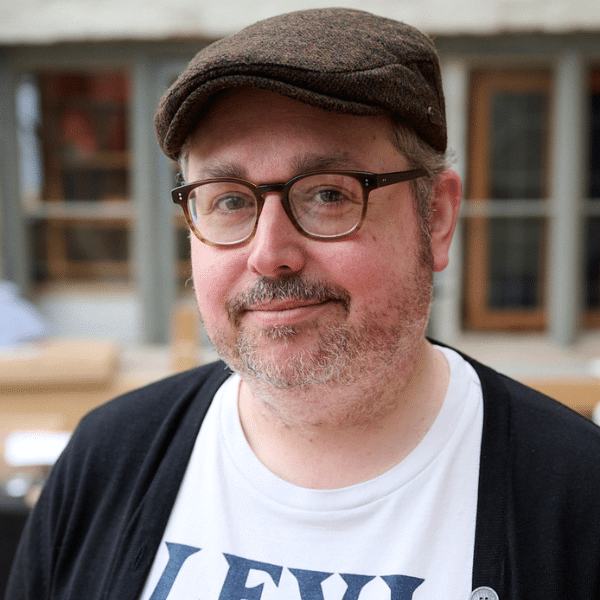Want to start writing fiction? Got a great short story in mind?
Learn the tools and techniques for writing compelling fiction with an online creative writing course designed for new writers and anyone wanting to write more regularly. Over 12 weeks of inspirational teaching, exercises and assignments you will receive personalised feedback on your work and learn how to create great characters, stories and voices.
This course is ideal for people who have done no formal training or courses who want to learn the basic skills of structuring and writing fiction. Build your confidence and a writing routine with the support of your peers and individual feedback from a highly experienced tutor.
Start date
Tuesday 7 May 2024
Location
Online
Length
12 weeks (please see course schedule below)
Price
£495
This course will cover…
- How to build a writing habit and use a writer’s journal
- Getting to know your characters inside out and learning how to write credible dialogue
- Perspectives and their impact on writing
- Finding the right structure for your work
- Beginnings and endings
- The nuts and bolts of the redrafting and self-editing process.
By the end of this course you will…
- Be familiar with the basic elements of a short story
- Have examined some published short stories in detail
- Write a complete short story, using what you have learnt about the workings of fiction
- Know how to give and receive useful, precise feedback and revise and improve your work
- Know how to keep your own writer’s notebook and generate new ideas
- Received feedback on up to 4,500 words of fiction.

Why study with National Centre for Writing?
National Centre for Writing has been supporting writers to develop their craft for over 25 years. Our online tutored courses are developed in partnership with University of East Anglia, home to the prestigious School of Literature, Drama and Creative Writing, which boasts award-winning alumni including Kazuo Ishiguro, Ian McEwan and Anne Enright. Our course tutors are all published writers, many of whom have studied or taught at UEA themselves.

While there are many online courses available to you across the world, ours are unique in offering:
- One-to-one feedback on up to six assignments, directly from your course tutor
- A tailored learning experience with 15 students maximum
- Flexibility to progress through the course anywhere, any time
- Support and structure to develop a writing routine
- Skills and knowledge to improve the craft of writing
- Confidence in your ability as a writer
- Opportunity to join our NCW Alumni, an international network of like-minded writers and translators.
Compared to the many other online writing courses — I’ve done many — the personal contact was tremendous.
Course programme
Module one – Getting started
In this module, you will explore exercises to release your creativity and meet your tutor and fellow students. You’ll use the world around you to help generate ideas for stories, and you’ll get into the habit of writing daily in a writer’s journal. The assignment for this module is up to 500 words of the seed of a story.
Module two – Character
In this module, you will get to know your characters inside out and you will learn how to write credible dialogue. You will complete exercises to develop relationships between your characters, discover the importance of subtext, and observe strangers in the real world to generate writing material. The assignment for this module is up to 750 words in which you introduce a character into a scene.
Module three – Whose story is it, and who is telling it?
This module is a journey through perspectives and their impact on writing. You’ll read examples of writing in the first, second, and third person, and through a series of exercises, you’ll explore how your story changes depending on the point of view. The assignment is up to 750 words encouraging you to explore a new point of view in your writing.
Module four – Finding the story
This module is focused on structure and its impact on narrative. You’ll learn that finding the right structure can make even the simplest story engaging, you’ll analyse a short story using a structured framework and you’ll practise implementing this in your own work. The exercise for this module will ask you to produce a rough draft of your own story, in less than 700 words.
Module five – Making it better
In this module, you’ll get deep into the nuts and bolts of the redrafting and self-editing process. You’ll work on editing on a sentence-by-sentence level through a series of exercises, you’ll be led through the essential art of showing, not telling, and you’ll produce a piece of writing to share with a trusted reader. You’ll learn how to give and receive feedback, and you’ll produce a critical self-commentary on your own work.
Module six – Beginnings and endings
In this final module, you’ll explore different ways of beginning your story. You’ll learn how to hook a reader from the first word and you’ll compare opening paragraphs to analyse their effect. You’ll also learn how to end a story, comparing different techniques and methods in order to bring your narrative to its conclusion. The assignment for this module is a completed short story of up to 2000 words, accompanied by a short self-appraisal that takes into account everything you’ve learned in the course.
Live sessions
There will be two live sessions for this course, which will take place over Zoom.
Zoom one: Monday 13 May, 8–9pm BST
Zoom two: Bookable one-to-ones on Monday 8 – Wednesday 10 July
Meet the tutor
Benjamin Johncock is an award-winning novelist, short story writer and journalist. His debut novel, The Last Pilot, was published in the U.S. and U.K. to widespread critical acclaim. It won the Authors’ Club Best First Novel Award, was shortlisted for the East Anglian Book of the Year, selected for Brave New Reads, and was one of The Observer’s Hidden Gems of 2016. His award-winning short stories have been published by The Fiction Desk, The Junket, Comma Press and Storgy. His journalism has appeared in the Guardian, The Spectator, and many others, and he has worked as an editor and copywriter. He’s on the editorial board of The Letters Page, a literary journal edited by Jon McGregor at the University of Nottingham, and for two years was a mentor for the National Centre for Writing’s Escalator writing programme. He is also a recipient of two Arts Council England grants. He lives in Norwich with his wife, his daughter, and his son.
Read Benjamin’s top tips for submitting your writing to publications and competitions →

I’ve taken away a much greater confidence in my creative work, an ability to be much more flexible but also decisive with my writing ideas, and have learned many new writing techniques and ways of working.
How does this course work?
We have partnered with digital learning platform Teachable to host our self-paced courses. The platform is accessible across a range of devices, simple to use, and does not require any specialist equipment.
![]()
We want to make sure that you get the most out of our tutored online courses and feel confident that you’re choosing the right course. Each course contains a mixture of teaching content, reading to prompt discussion, writing exercises for you to hone your skills, and group and one-to-one feedback.
Click to read more about how they are structured and what equipment you may need.

Got a question?
If you still have questions, get in touch with the learning team by email [email protected] or phone (+44) 01603 877177 between our working hours of 9am – 5pm BST, Monday to Friday. We’re here to help!







